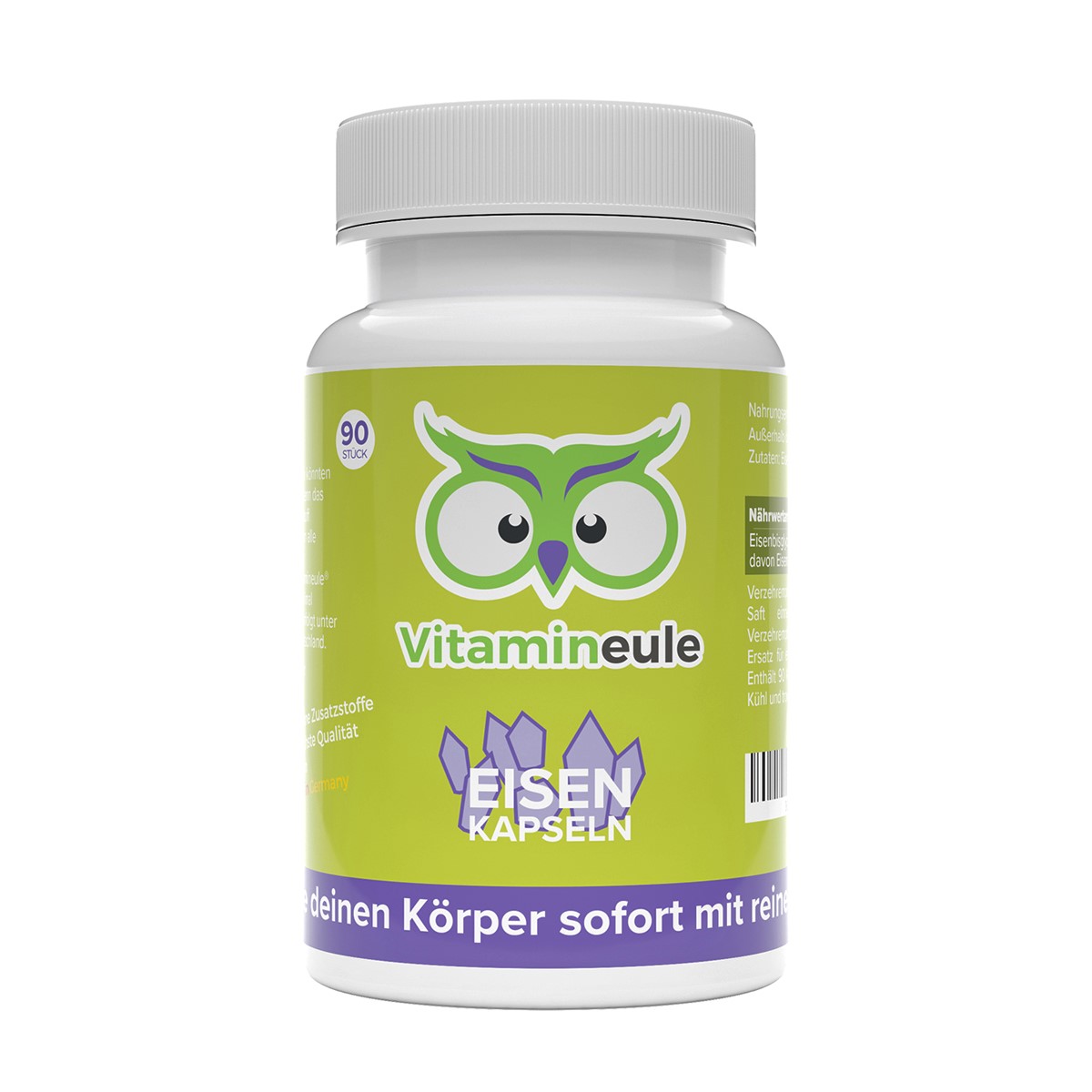

Team Vitamineule
Questions, wishes or suggestions? Just contact us by email or on Facebook.
1. more need for iron in pregnancy?
Many people wonder whether women need to take in more iron during pregnancy. The female body needs iron not only for itself, but also for the growing child. For this reason, the need is increased and one should take in a little more iron. During pregnancy, the iron requirement increases from 15 mg of iron to approx. 30 mg of iron per day. During pregnancy, special care should be taken to ensure that the human organism is supplied with enough iron. An iron deficiency can have serious consequences. These include premature birth or complications during pregnancy. In order for the thyroid gland of the unborn child to grow, the body needs iron. Iron also ensures that the baby's brain develops well. An adequate supply of iron is particularly important in the first trimester of pregnancy.
2 What is the daily requirement of iron?
The German Nutrition Society (DGE) recommends a daily iron intake of 10 to 15 mg for an adult. Children should take in about 10 mg of iron per day. Pregnant and breastfeeding women are recommended to take in higher amounts of iron, as they have to take care of their unborn child. They should take in about 20 to 30 mg of iron a day.
You can find out if you have an iron deficiency by visiting your doctor. Once it is determined from the medical practitioner that one is suffering from an iron deficiency, one should increase the iron levels by changing the diet or taking supplements. When supplementing iron, one can choose between iron capsules and iron tablets. It is important to have another test at the doctor's after the change. The iron values should be compared regularly.
3. causes of an iron deficiency
Many people wonder how an iron deficiency can develop in the first place. There are many reasons for this.
Possible causes of an iron deficiency
- disturbed iron resorption
- One-sided and unbalanced diet
- heavy menstrual bleeding
- blood donation
- chronic bleeding in the gastrointestinal tract
- haemolysis
- increased need e.g. pregnancy or lactation period
- reduced congenital intake
- taking certain medicines e.g. stomach deacidifiers
4. dietary supplements containing iron
If you want to increase an iron level that is too low with a food supplement, you should definitely pay attention to the form of the active ingredient and its origin. Iron bisglycinate is particularly suitable for increasing iron levels. It is very well tolerated and is utilized by the body to a high degree. The preparation should also not contain any chemical additives such as magnesium stearate or microcrystalline cellulose. If you buy a preparation from Germany, you can be sure that the product has also been produced safely and is of high quality.
Our recommendation:
Vitamineule® Iron Capsules
In our online shop you will find our iron capsules from Vitamineule®, which are completely free of artificial additives. Vitamineule® Iron Capsules contain 56mg of pure iron per capsule in the effective form iron bisglycinate. Each tin contains 90 caps ules.In addition to fast & free shipping, we offer a voluntary six-month return guarantee on all products.
5. conclusion: More iron requirement in pregnancy?
During pregnancy, the need for iron is increased. The pregnant woman must not only provide for herself, but also for the unborn child. In this regard, the consumption of iron-rich foods can be very useful. The additional supplementation of iron in the form of food supplements also helps. You can choose between iron capsules and iron tablets. Both forms are easy to use and get into the circulation quickly.
Further reading:
- Management of Iron-Deficiency Anemia in Inflammatory Bowel Disease
- Management of Iron Deficiency Anemia
- [Iron deficiency and iron deficiency anemia are global health problems].
- Iron absorption from oral iron supplements given on consecutive versus alternate days and as single morning doses versus twice-daily split dosing in iron-depleted women: two open-label, randomised controlled trials
- Iron Deficiency and Iron Homeostasis in Low Birth Weight Preterm Infants: A Systematic Review
Disclaimer and general medical notice: The content presented in our health blog is for neutral information and general education purposes only. It does not constitute a recommendation or promotion of any diagnostic method, treatment or drug described or mentioned. The text does not claim to be complete, nor can the timeliness, accuracy and balance of the information presented be guaranteed. The text is in no way a substitute for professional advice from a physician or pharmacist and it should not be used as a basis for independent diagnosis and initiation, modification or cessation of treatment of any disease. Always consult your trusted physician for any health questions or complaints. Mach Dich Wach! GmbH and the authors accept no liability for any inconvenience or damage resulting from the use of the information presented here.

